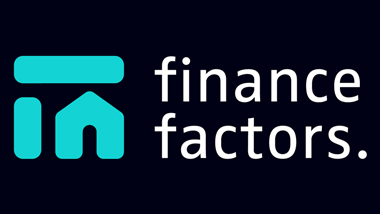Specialist Lending
At Finance Factors, we understand that not every financial need fits into the conventional mortgage framework. That's why we offer a range of specialist lending solutions to help bridge the gap and make your financial journey smoother. Our aim is to take the FAFF out of Finance, providing clear and easy guidance.
Types of Specialist Lending
Bridging Loans
A bridging loan is a short-term financial solution designed to provide quick access to funds. Ideal for those who need immediate financing, bridging loans can ‘bridge the gap' between the purchase of a property and the securing of a long-term financial arrangement, such as a residential mortgage or the sale of the property.
Bridging lenders require an exit strategy to ensure the loan will be repaid. You can opt for monthly payments or ‘roll-up' payments, settling the full amount at the loan's exit. Be mindful of associated fees such as arrangement fees (typically 1-2% of the loan amount), legal fees, valuation fees, admin fees, and exit fees. Interest rates usually range from 0.5% to 1.5% per month.
Refurbishment Finance
Refurbishment finance is another short-term lending option, perfect for property developers, investors, landlords, and homeowners looking to add value to a property. This type of finance is ideal for both light and heavy refurbishment projects.
Light Refurbishment includes tasks such as fitting new bathrooms or kitchens, redecorating, rewiring, and garden renovation. Heavy Refurbishment involves more extensive work like adding extensions, structural changes, loft and basement conversions, and any project requiring planning permission.
Development Finance
Development finance is tailored for large-scale property projects, whether residential or commercial. This short-term finance solution is released in stages, ensuring funds are used as planned. Independent monitoring surveyors (IMS) may be employed to track progress, ensuring the project stays on budget and schedule.
Fees are similar to those for bridging finance but can be more substantial due to the scale of the projects. Developers are expected to have a contingency fund of around 10% to cover unexpected issues.
Auction Finance
Auction finance is designed for quick property purchases at auctions. Similar to bridging finance, it provides rapid access to funds, allowing you to meet auction house time requirements. Pre-approach a lender for an overview decision based on your financial situation, known as ‘indicative terms.' Once you've won a bid, a full credit check will be conducted. Having a clear exit strategy is crucial for securing auction finance.
Enquire today:
Referrals to Specialist Lending: Frequently Asked Questions
What is specialist lending?
Specialist lending refers to financial solutions designed to meet needs that fall outside conventional mortgage frameworks. These include bridging loans, refurbishment finance, development finance, and auction finance.
What are bridging loans?
Bridging loans are short-term financial solutions that provide quick access to funds, often used to 'bridge the gap' between property purchase and securing long-term finance or selling the property.
What is refurbishment finance?
Refurbishment finance is a short-term lending option for property developers, investors, landlords, and homeowners looking to add value to a property through light or heavy refurbishment projects.
What does development finance cover?
Development finance is tailored for large-scale property projects, providing funds in stages to ensure the project stays on budget and schedule. It is suitable for residential and commercial developments.
How does auction finance work?
Auction finance provides rapid access to funds for property purchases at auctions. Pre-approach a lender for indicative terms and have a clear exit strategy to secure the finance post-bid.
What fees are associated with specialist lending?
Specialist lending fees may include arrangement fees (1-2% of loan amount), legal fees, valuation fees, admin fees, and exit fees. Interest rates for bridging loans range from 0.5% to 1.5% per month.
What is an exit strategy in specialist lending?
An exit strategy is a plan to repay the loan, such as securing long-term finance or selling the property. It is crucial for securing bridging, auction, and other specialist loans.
For more information on our mortgage advice in Maidstone and services, visit our Guides or explore our Mortgage Protection options.
Phone: 07785 954074
Address: 2 Kingsbroom Court, Kingswood, Maidstone, England, ME17 3ST
Email: kbl@financefactors.co.uk

YOUR HOME MAY BE REPOSSESSED IF YOU DO NOT KEEP UP REPAYMENTS ON YOUR MORTGAGE OR OTHER LOANS SECURED AGAINST IT.
-
Finance Factors is a Trading style of Finance Factors LTD who are an Appointed Representative of Advice Solutions LTD which are Authorised and Regulated by the Financial Conduct Authority. The Financial Service Register Number is 961681.
The Financial Conduct Authority does not regulate some forms of Buy to Lets.
There may be a fee for mortgage advice. The precise amount will depend on your circumstances, but will be agreed with you before proceeding.
Finance Factors is a Limited Company. Registered Address: Finance Factors Ltd, 2 Kingsbroom Court, Kingswood, Maidstone, England, ME17 3ST, United Kingdom. Registered in England and Wales under number 15814885.
We always aim to provide a high-quality service to our customers. However, if you encounter any problems, in the first instance please write to the registered address above, email or call Finance Factors outlining your complaint, if we are unable to resolve this, you can take your complaint to an independent Ombudsman. Our advice is covered under the Financial Ombudsman Service (www.http://www.financial-ombudsman.org.uk/consumer/complaints.htm).
The guidance and/or information contained within this website is subject to the UK regulatory regime and is therefore targeted at consumers based in the UK. Some calls maybe recorded for training and monitoring purposes.